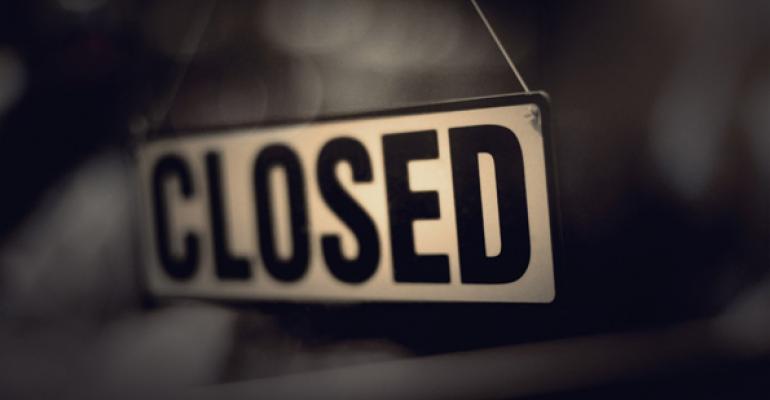(Bloomberg)—It hasn’t been a good year for traditional retailers on either side of the Atlantic.
Yet multiple store closures, bankruptcies and profit warnings -- with the finger often pointed toward Amazon.com Inc. -– have created some buying opportunities in the much-maligned sector, according to the head of a $1.1 billion investment company.
“You could probably almost buy anything in retail at this precise point in time because sentiment has got so depressed,’’ Alasdair McKinnon, manager of Scottish Investment Trust, said in an interview referring to retailers in both the U.K. and U.S. “Stocks look incredibly cheap.’’
McKinnon, who looks for “ugly duckling’’ investment themes, likes large-cap consumer companies with a turnaround story, including Marks & Spencer Group Plc and Tesco Plc in the U.K., and Gap Inc. in the U.S. The e-commerce giant that brick-and-mortar stores are facing up against is priced “as if nothing can go wrong” and will face a regulatory backlash as concerns build about its growing domination of retail and tax practices, he says.
Based on current estimates, Amazon shares trade at more than 100 times 2018 earnings, dwarfing Marks & Spencer on about 13 times, Tesco at 19 times and Gap at 14 times.
European retailers have underperformed this year, with the Stoxx 600 Retail Index -- which includes Marks & Spencer and Tesco -- down about 4 percent compared with an 8 percent gain for the broader gauge. It’s been a similar story in the U.S., where the S&P Supercomposite Multiline Retailing Index -- including Target Corp. and Macy’s Inc. -- is down 10 percent compared with a 14 percent jump in the S&P 500 Index.
While companies which simply try to compete with Internet retailers on price will likely fail, those that can adapt to the new e-commerce environment and have a strong brand, like Marks & Spencer and Gap, are good investments, according to McKinnon. “People do like going shopping. It’s a social thing, it’s a hobby.’’
Marks & Spencer is a good bet under a new chairman with a history of retail turnarounds, a strong food business, and a high dividend yield, McKinnon said. Tesco’s new leadership since a 2014 accounting scandal is doing a good job, while the pending deal with Booker Group Plc, provided it closes, is a logical way to make better use of distribution networks, he said.
Gap has “an incredibly powerful brand,” according to McKinnon, something that should help Chief Executive Officer Art Peck in his comeback plan. Investors are already switched on to the U.S. retailer’s revival, pushing the stock up 31 percent this year.
Scottish Investment Trust, with about 853 million pounds ($1.1 billion) in assets, has returned about 21 percent in the past 12 months compared with about 19 percent for peers, according to data compiled by Bloomberg.
As a contrarian investor, McKinnon is looking for bubbles that are about to burst and companies near to reversing a slump. “Often the point of mania is a danger sign and the point of depression is a big opportunity,” he said.
To contact the reporter on this story: Beth Mellor in London at [email protected] To contact the editors responsible for this story: Celeste Perri at [email protected] Paul Jarvis
COPYRIGHT
© 2017 Bloomberg L.P

